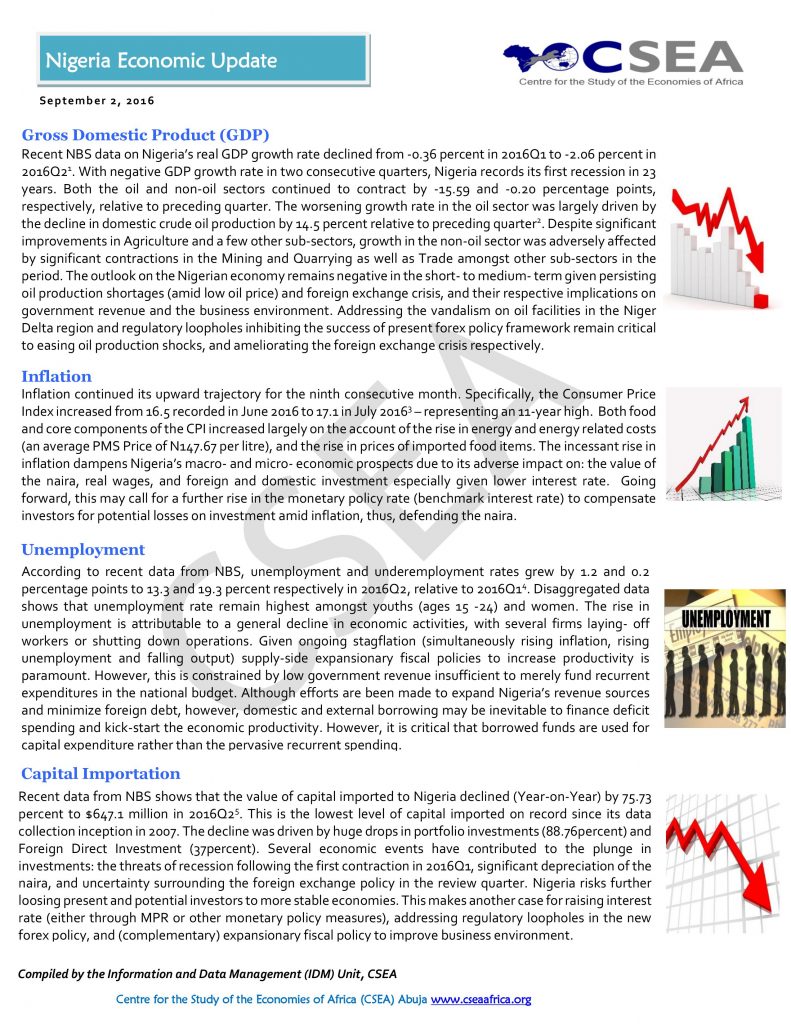Macroeconomic Report & Economic Updates

September 8, 2016
Nigeria Economic Update (Issue 38)
Recent
NBS data on Nigerias real GDP growth rate declined from -0.36 percent in
2016Q1 to -2.06 percent in 2016Q2. With negative GDP growth rate in
two consecutive quarters, Nigeria records its first recession in 23 years. Both
the oil and non-oil sectors continued to contract by -15.59 and -0.20
percentage points, respectively, relative to preceding quarter. The worsening
growth rate in the oil sector was largely driven by the decline in domestic crude
oil production by 14.5 percent relative to preceding quarter
Related
Nigeria Economic Update (Issue 16)
Recently
released World Economic Outlook by the International Monetary Fund (IMF)
projects economic activities to increase significantly in developing countries-
especially Nigeria. Annual real output is expected to grow by 0.8 percent in
2017 from the contraction of 1.5 percent in 20161. Improvement in
economic activities is hinged on prospective favorable effects of continued
increase in commodity export price (Crude oil is expected to increase to $55
per barrel in 2017 compared to $46 in 2016).
Nigeria Economic Update (Issue 22)
Power
sector analysis shows a decline in power generated by 15.07 percent from a peak
of 3,424 mw to 2,908 mw between May 8, 2016 and May 15, 20169. The
declining power supply is attributable to vandalism of pipelines and gas
shortages, which has a debilitating effect on power generation. As part of the
efforts by the Federal Government to improve power supply in the country, the
Bank of Industry (BoI) is currently funding intervention projects to provide
alternative source of energy (solar) in rural areas across the country10.
Since the major problem facing power generation in the country is gas
shortages, the government should make concerted efforts to combat vandalism.
Nigeria Economic Update (Issue 43)
Crude oil prices have sustained upward increases for the past few weeks in October. While upward trajectory of crude oil prices is expected to be sustained in the short term in line with OPECs production cuts deal expected to run until March 2018, it is important to note that crude oil prices would remain volatile. The Nigerian government therefore should take advantage of periods of high revenue from crude oil exports to develop other sectors (such as Agriculture, Manufacturing and Services sectors) of the economy as key exporting and revenue generation sectors, and thus minimize volatility risks
